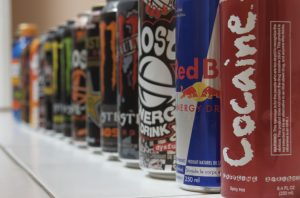 The United States National Center for Complementary and Integrative Health (the NCCIH) reports that energy drinks are one of the most popular dietary supplements in America. In fact, they are more commonly used than other types of [healthier] dietary supplements.
The United States National Center for Complementary and Integrative Health (the NCCIH) reports that energy drinks are one of the most popular dietary supplements in America. In fact, they are more commonly used than other types of [healthier] dietary supplements.
In this report, the NCCIH says that the males between the ages of 18 and 34 are most likely to consume energy drinks. Perhaps more importantly, the report also details that roughly one-third of teens (between the ages of 12 and 17) consume energy drinks on a regular basis.
The reason this study is so important, of course, is that many have expressed concern over the potential health risks associated with energy drinks. Sure, they are readily available at grocery stores and convenience stores across the United States, but they do contain high levels of caffeine, taurine, and other stimulants. And since they are considered a “dietary supplement” there really is no heavy regulation over how much of these stimulants they may contain.
Of course, there are other studies which suggest that even one energy drink could result in serious health risks to blood vessel function. Similarly, an upcoming study plans to look at the relationship between energy drinks and cardiovascular health.
For this study, though, the research team at Cedars-Sinai Medical Center looked at the endothelial function. The endothelium is the layer of cells which line the surface of the blood vessels. The study accounts that endothelial dysfunction leads to the arterial inability to dilate properly, which can then lead to heart attack.
With that in mind, the researchers tested endothelial function in the study participants before consuming a 24-oz energy drink, and then again 90 minutes after. They found that within just 90 minutes of consuming the 24-oz energy drink, the internal diameter of blood vessels had reduced by almost 50 percent. The researchers suggest, then, that the caffeine, taurine, sugar, and other herbal contents of these energy drinks could have a negative effect on the blood vessels, which means simply drinking just one of them could increase heart attack risk.
